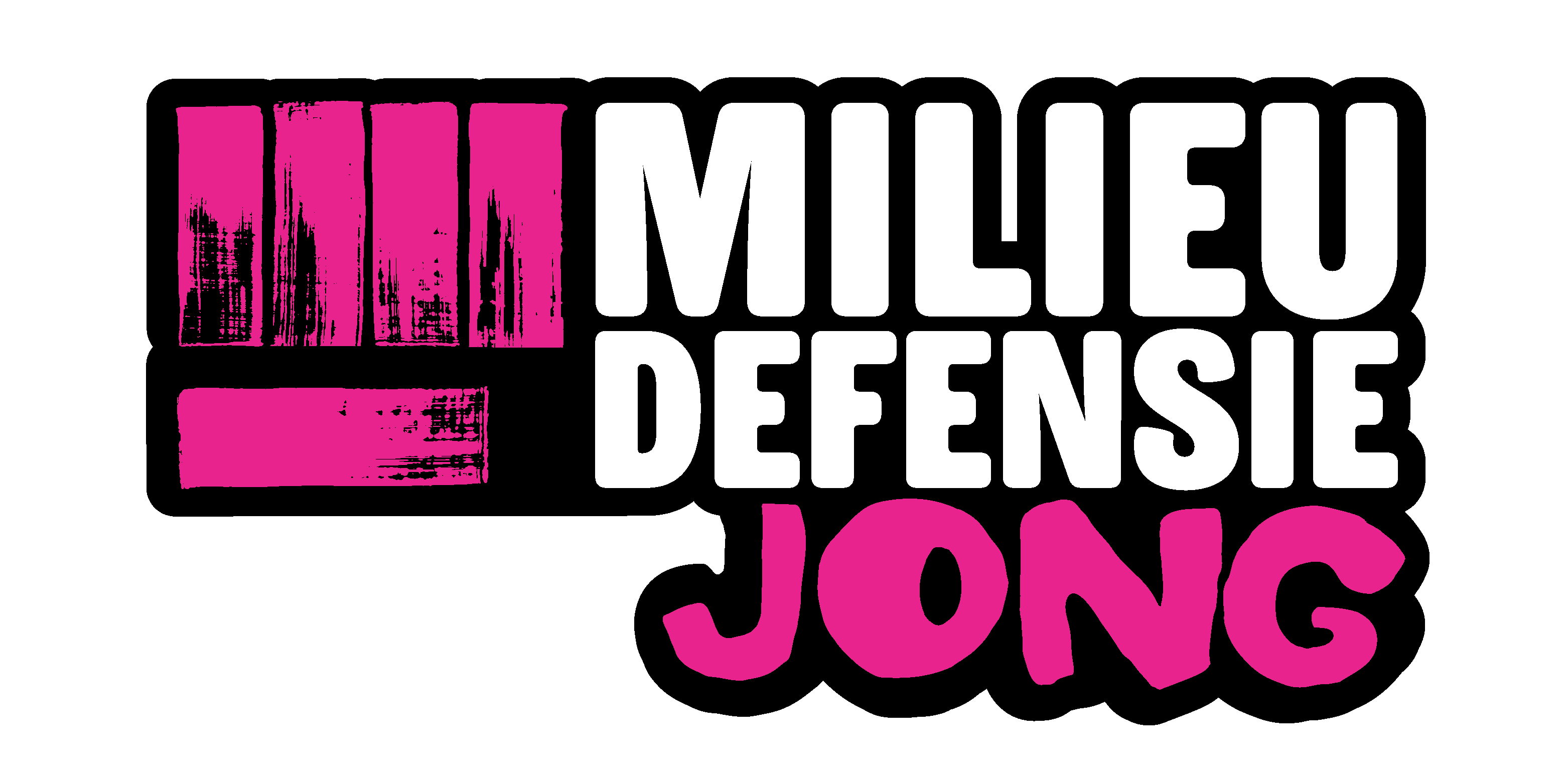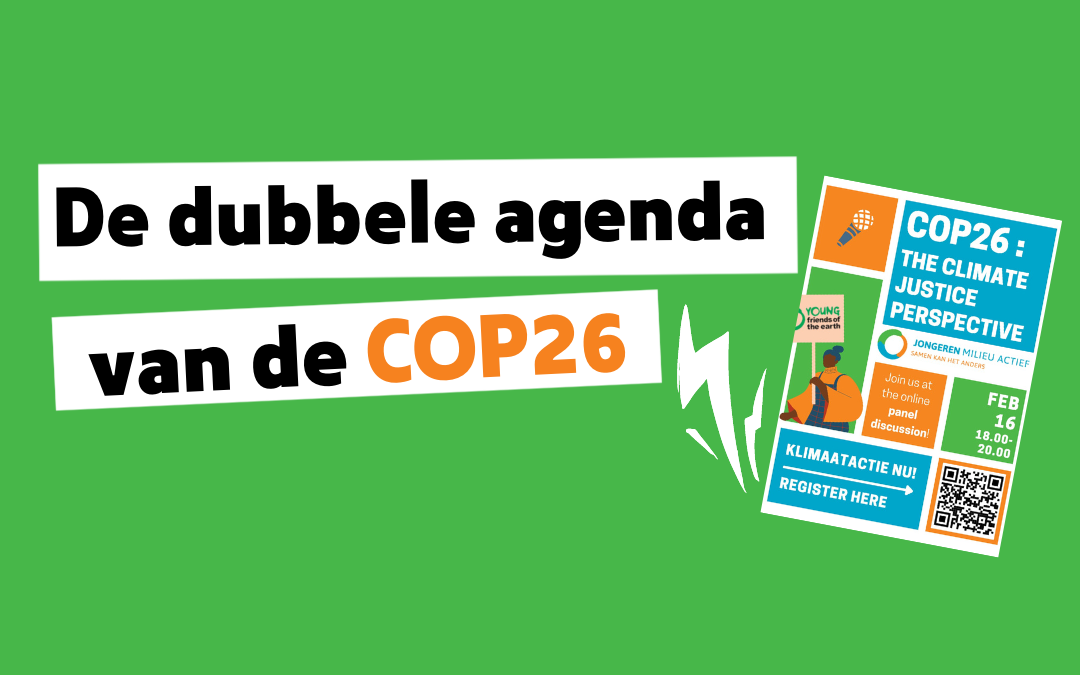Geschreven door Chiara Lacroix |
[ENGLISH BELOW]
De gecoöpteerde COP en de parallelle conferentie: Een rapport van het evenement: ‘COP26: het klimaat gerechtigheidsperspectief’
November 2021 kwamen wereldleiders, activisten en het hoogste bedrijfsleven samen in Glasgow. Deze onwaarschijnlijke samenkomst werd veroorzaakt door de 26ste United Nations Climate Change Conference, beter bekend als de COP26. Het doel van de klimaattop was het vaststellen van volgende stappen om klimaatverandering tegen te gaan, maar over het daadwerkelijk behaalde resultaat was onenigheid. Veel noemden het een mislukking; anderen een eerste stap in de juiste richting. Wij wilden, als het Klimaatrechtvaardigheidsteam van JMA, verder dan deze tegenstrijdige en veelal oppervlakkige reacties kijken en erachter komen hoe de COP26 echt verlopen is. Daarom hebben we zes activisten en wetenschappers, verspreid over heel de wereld, gevraagd om hun visie te delen op de top in een online panel talk: Yuv Sunghur, Isadora Cardoso, Veerle Bertje Engel, Stuart Tannoch, Ana Clara Cassanti en Raki Ap (Onder het artikel staat meer informatie over sprekers). Het leidde tot een plezierige en gefocuste discussie waarin we leerden dat de belangrijkste uitkomsten soms buiten de schijnwerpers blijven.
De teleurstelling en het theater van de COP26
Al snel na de start van het evenement ontdekten we dat haast al onze genodigden de COP26 een teleurstelling vonden. Voor Isadora Cardoso was ‘de grote mislukking’ van de conferentie het ontbreken van een antwoord op de vraag hoe we om moeten gaan met ‘het verlies en de schade’ van de mens veroorzaakte klimaatverandering. En zoals Yuv Sunghur zei, zullen sommige landen meer schade te verduren krijgen dan anderen: Kleine Eilandstaten in Ontwikkeling zien hun land in rap tempo opgeslokt worden door een stijgende oceaan. Maar op de top is niet overeengekomen hoe de scheve kosten en verliezen van klimaatverandering eerlijk gedeeld en verdeeld kunnen worden. De COP26 verraadde de verwachtingen van de mensen uit ontwikkelingslanden zoals Mauritius, Yuv’s moederland.
Dat de COP gefaald heeft in dit opzicht, kan komen door een structureel probleem van de top: het gebrek aan inclusiviteit en diversiteit. Raki Ap benoemde dat de fossiele brandstof lobby de grootste afgevaardigde was op de COP, terwijl de stemmen van de indigenous people en de eilandbevolkingen nauwelijks te horen zijn. Kosten en Coronamaatregelen maakten de top onbereikbaar voor degenen die klimaatonrechtvaardigheid dagelijks ervaren.
Zelfs als Glasgow was bereikt, was het lastig om je stem te laten horen. Veerle Engel illustreerde dat met het verhaal op haar T-shirt. Dagelijks stond ze in de zogenoemde Blue Zone, de plaats voor de officiële COP-onderhandelingen, met haar shirt waarop stond: ‘Climate Crisis = Colonial Crisis’. De boodschap die Veerle wilde overbrengen, was dat de huidige klimaatcrisis een directe erfenis is van het Europese kolonialisme. Op de derde dag werd haar shirt in beslag genomen door de beveiliging: het shirt was ‘té politiek’. Door zich op te stellen als de rechter van het aanvaardbare, beschermt de COP26 de belangen van de machtige landen, terwijl ze afwijkende stemmen het zwijgen op leggen. Het gebrek aan diversiteit en het wegstoppen van andere meningen leidt tot een ‘geopteerde COP’, zoals Isadora het noemt en in Raki’s sterkere bewoording, een groot theater.
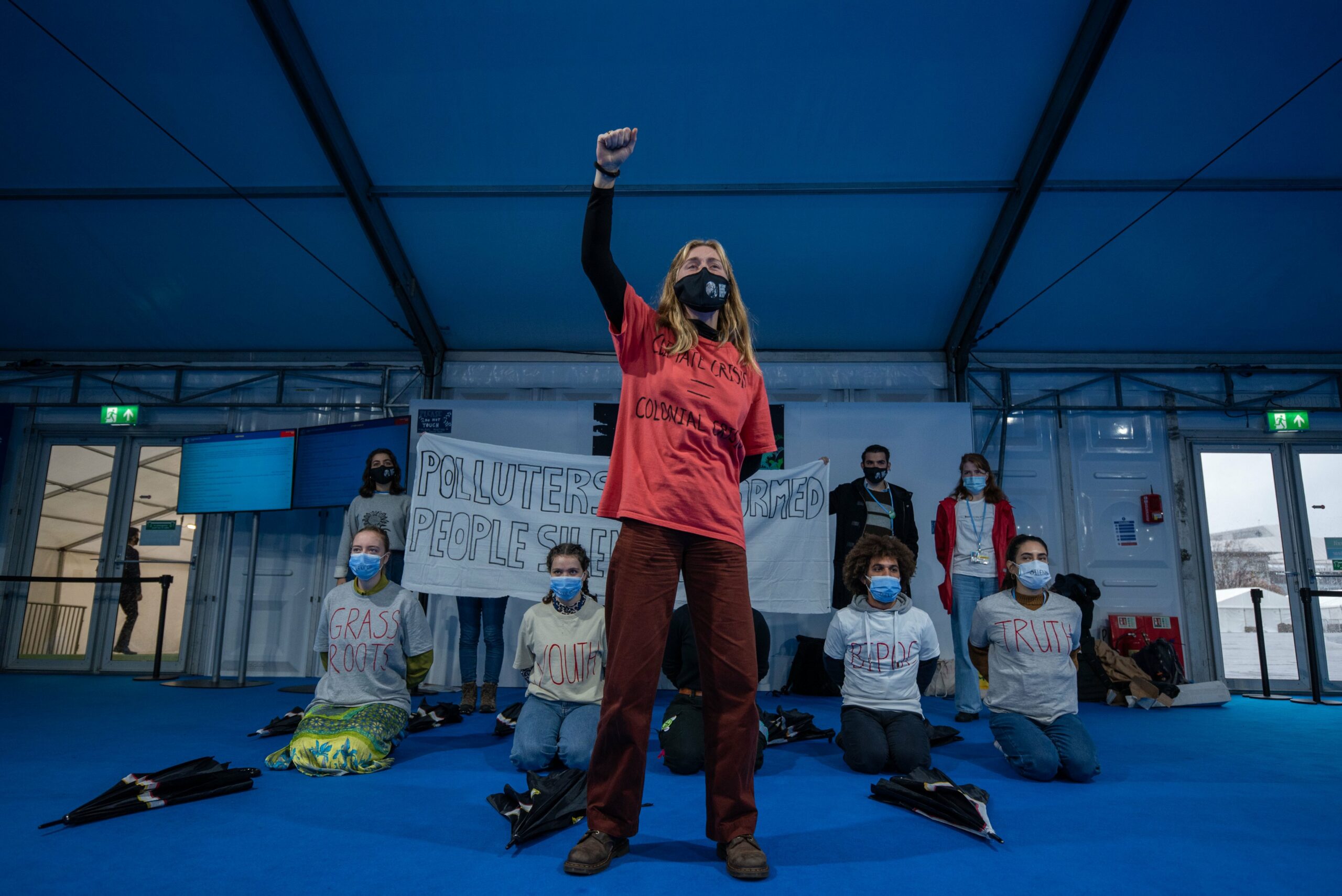
Veerle protesteert in de ‘Blue Zone’ en draagt haar T-shirt ‘Climate Crisis = Colonial Crisis’
Hoop buiten de Blue Zone
Gelukkig kwam er wel wat goed nieuws uit de conferentie, bijvoorbeeld in de landbouw, een sector die verantwoordelijk is voor een groot deel van de broeikasgassen. Ana Clara Cassanti vertelde ons dat agro-ecologie (waarbij ecologische principes worden gebruikt bij de agricultuur) voor het eerst werd bediscussieerd bij de COP26. Verschillende landen waaronder Australië, de grootste exporteur van vee, hebben nieuwe beloften gemaakt om emissies te verminderen. Maar de wellicht meest productieve beslissingen en verbonden werden buiten de officiële kanalen gesloten. Terwijl diplomaten en lobbyisten samenkwamen in de Blue Zone, vond een paar meter verderop een parallelle conferentie plaats.
The People’s Summit for Climate Justice, georganiseerd door activisten, was een belangrijk onderdeel van deze parallelle conferentie. Zij deelden hun visie op klimaatrechtvaardigheid aan de mensen in Glasgow en online, en hielden het publiek op de hoogte van wat er gebeurde op de conferentie. Isadora, Raki en Veerle die alle drie aanwezig waren op de top, waren van mening dat de onderhandelingen en gesprekken die werden gefaciliteerd door de parallelle conferentie, het meest productieve onderdeel van de COP26 was.
Buiten de officiële ruimtes van de top waren niet alleen activisten bezig. Isadora merkte op dat sommige van de meest cruciale beloften buiten het officiële kader waren gemaakt. Verschillende ontwikkelde en ontwikkelingslanden, samen met enkele internationale banken, willen vanaf 2023 alleen nog duurzame energie gebruiken. Hoe dit echter zonder bindende afspraken wordt geïmplementeerd blijft onduidelijk. Maar toch, terwijl iedereen naar de officiële onderhandelingen keek, werden de meest ambitieuze plannen en samenwerkingsverbanden net buiten de blue zone gemaakt.
De volgende stappen
Hoe moeten we deze ‘geopteerde COP’ en de parallelle conferentie zien? Wat is de weg vooruit? Hoewel alle sprekers bijna dezelfde kritiek hadden op de COP26 verschilden hun meningen toen het ging over wat nu moet gebeuren. Isadora wil internationale conferenties blijven bijwonen, om meer diverse stemmen te laten horen. In zijn presentatie over onderwijs over klimaatverandering, benadrukte Stuart Tannock het belang van het onderwijzen in radicale verandering om sociale verandering te bewerkstelligen. Hierbij hoeft niet naar de grote conferenties te worden gekeken, waar echte beslissingen vaak uitblijven. Stuart ziet in het lokaal organiseren en onderwijzen meer heil. Conferenties zoals de COP moeten volgen, niet leiden.
In de problematiek moeten ook de milieuorganisaties worden meegenomen. Raki maakte dit duidelijk toen hij vertelde over het perspectief van de indigenous peoples op klimaatrechtvaardigheid. Volgens Raki beschermen indigenous peoples 80% van de overgebleven biodiversiteit. Terwijl hun rechten en de rechten van hun land vaak worden gepasseerd om er landbouwgrond van te maken. Niet alleen overheden, maar ook milieuorganisaties, gaan vaak langs of over de indigenous peoples. Om klimaatrechtvaardig te handelen moeten activisten hun stilte rondom de indigenous people verbreken en focus leggen om hun rechten te beschermen.
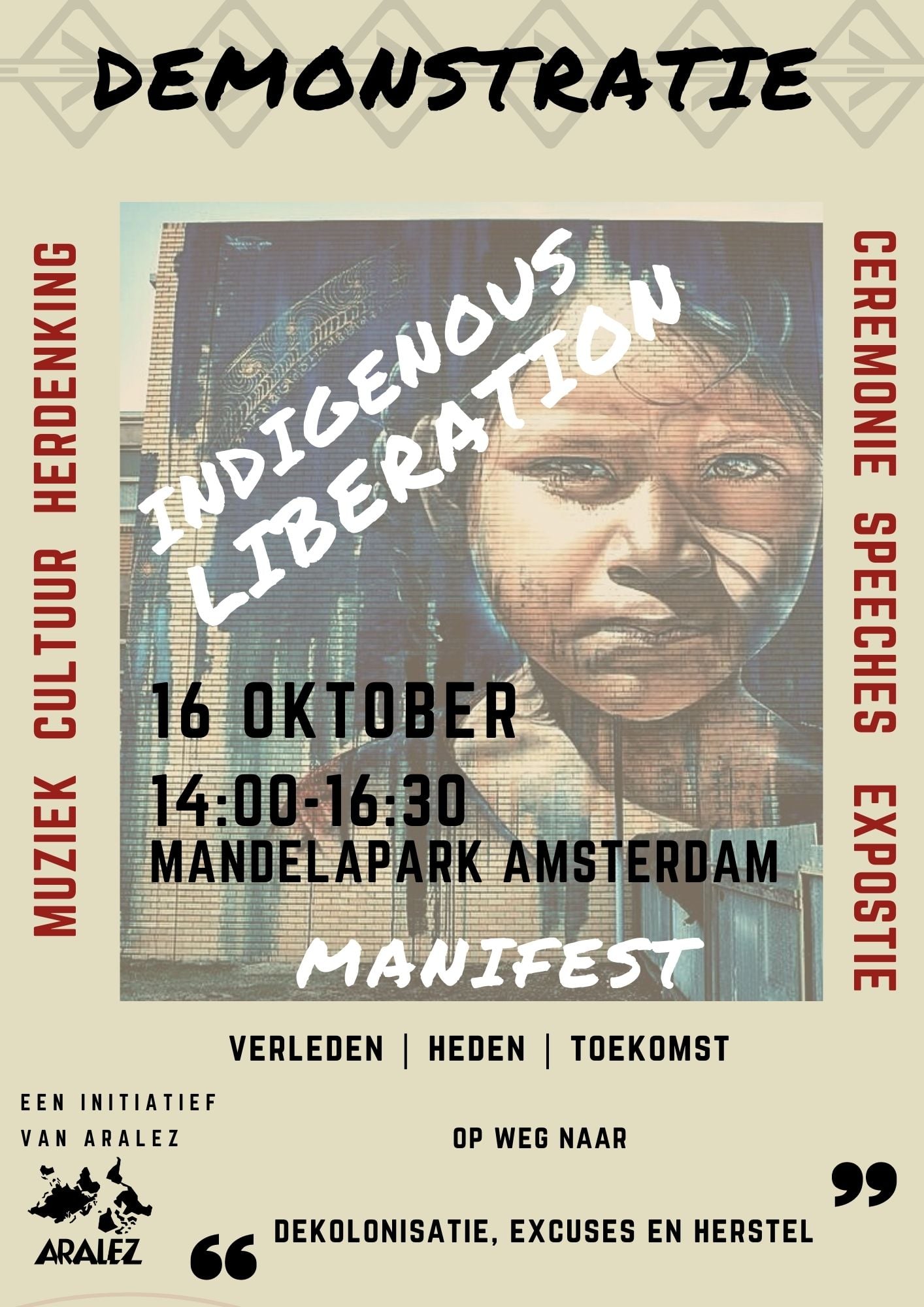
2021 poster voor de Indigenous Liberation Day in Amsterdam, waar Raki sprak over de strijd van de indigenous peoples om hun landen en rechten te beschermen.
Een ander punt was het overbruggen van individuele en structurele verandering. Op de vraag wat burgers zouden moeten doen om naar een gelijke en groene toekomst te gaan, gaven verschillende sprekers het belang van individuele actie aan: ‘één persoon kan een verschil maken’, of dat andere patronen bijdragen aan een groenere toekomst. Hoe individuele actie kan leiden tot een verandering in het systeem dat tot de klimaatcrisis heeft geleid blijft onduidelijk. Stuart benadrukte in zijn presentatie dat er verwarring en onzekerheid is over hoe individuen kunnen bijdragen aan collectieve bewegingen. Zelfs degenen die weten dat de klimaatcrisis een structurele oorzaak heeft keren vaak terug naar individuele actie wanneer ze willen opkomen voor het klimaat.
Hoewel we geen antwoord vonden op deze cruciale vraag, hadden onze sprekers wel suggesties om de kloof tussen individu en systeem te dichten. Yuv noemde het verspreiden van kennis, zodat wat één persoon weet wordt gedeeld met anderen. Alle sprekers benadrukte (in verschillende mate) hoe belangrijk het is om onderdeel te zijn van een beweging. Een beweging creëert acties en veranderingen die we op onszelf onmogelijk tot stand kunnen brengen. Onze panel talk was een klein voorbeeld van zo’n collectieve actie.
De Sprekers
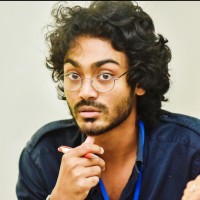
Yuv Sungkur
Yuv Sungkur is een 22 jaar oude Mauritiaanse master student in Global Environmental Governance, Sustainability and Climate Change aan de Vrije Universiteit Amsterdam. Hij heeft een Bachelor diploma in Political Science aan de McGill University. Gepassioneerd over klimaatverandering en het bestrijden van de gevolgen voor de Kleine Eilandstaten in Ontwikkeling, representeert hij Mauritius als een afgevaardigde in de 16th United Nations Climate Change Conference of Youth (COY16), gehouden in Glasgow. Hij is ook de voorzitter en mede oprichter van een lokale humanitaire NGO – Food Water Hygiene (FWH) Mauritius – dat de bevolking steunt in nasleep van de corona pandemie.

Veerle Bertje Engel
Veerle is een jongeren activist en organisator uit Nederland. Terwijl ze actief was bij Jongeren Milieu Actief stichtte ze de Climate Justice Committee, dat voornamelijk is gericht op het verbreden en verdiepen van het gesprek rondom intersectionale klimaatrechtvaardigheid en wat dat moet inhouden. Met het Committee en in samenwerking met de Aralez foundation, a pan-decolonial network gevestigd in Amsterdam, en verscheidene (politieke) jongerenorganisaties, startte ze de door jongeren geleide Climate Solidarity Coalition. Het hoofddoel van deze coalitie is het eisen van een centrale plaats voor Indigenous en andere grassroots perspectieven binnen het Nederlandse klimaat debat en de klimaat bewegingen.
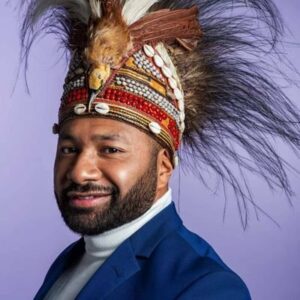
Raki Ap
Raki Ap werkt bij het Ministerie van Binnenlandse Zaken. Na de moord op zijn vader Arnold Ap vluchtten hij, zijn moeder en drie broers naar Nederland. Hij ging bij het Nederlandse leger aangezien hij wilde bijdragen aan de internationale vrede en veiligheid. Dit was een goede basis na zijn turbulente jeugd, waar hij onder andere discipline, kennis en ervaring meekreeg. Wat hij heeft gebruikt tijdens zijn voordrachten in de afgelopen 10 jaar.
Hij staat bekend als een veelzijdige activist, die is engageert in politiek en klimaat activisme en mensenrechten, aangezien al deze drie aspecten actief spelen in West Papua. In Nederland probeert hij het klimaatdebat in een meer indigenous perspectief te plaatsen, want we kunnen niet om de feiten heen draaien om klimaatverandering binnen 8 jaar op te lossen; we moeten wijzen op wat belangrijk is. En West Papua is een verhaal vol passie, zodat we elkaar kunnen inspireren om de belangrijke strijd te overwinnen en echt klimaatverandering te kunnen tegengaan.
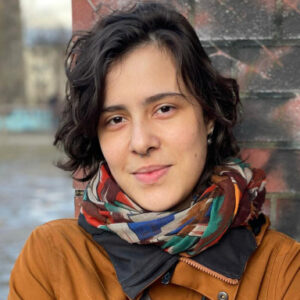
Isadora Cardoso
Isadora Cardoso is een queer feminist, klimaatactivist en expert wonend in Berlin. Al zes jaar lang onderzoekt ze, leidt ze projecten en spreekt ze over intersectionale klimaatrechtvaardigheid bij NGOs, denktanks en internationale organisaties in Brazilië, Duitsland en meer landen. Ze heeft een masters diploma in globalization and development studies en zit momenteel bij het Institute for Advanced Sustainability Studies in Potsdam, Duitsland, waar ze het debat en de mogelijkheden onderzoekt naar een rechtvaardige energie transitie in Brazilie and Duitsland.
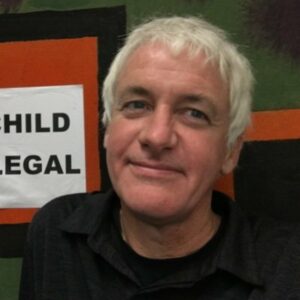
Stuart Tannock
Stuart Tannock is een universitaire hoofddocent in Sociology of Education aan de UCL Institute of Education in London. Zijn onderzoek en onderwijs richten zich op gelijkheid in het onderwijs en rechtvaardigheid in een globale context; en op alternatieve vormen van radicaal, populair, democratisch en klimaat onderwijs. Hij is de schrijver van Youth Rising? The Politics of Youth in the Global Economy (Routledge 2015) en Educating for Radical Social Transformation in the Climate Crisis (Palgrave Macmillan 2022).

Ana Clara Cassanti
Ana Clara Cassanti is een docent in Sustainability at the Institute for Environmental Studies aan de Vrije Universiteit Amsterdam. Ze heeft een Bachelor diploma in Environmental Engineering aan de São Paulo State University (UNESP) in Brazilie en een Master in Energy and Environmental Sciences aan de Universiteit van Groningen in Nederland. Ana heeft ervaring opgedaan in het onderwijzen en onderzoeken op middelbare schoolniveau en het ontwikkelen van een schoolcurriculum in Brazilië. Nu ontwikkelt ze haar kennis en onderwijs vaardigheden verder met haar werk bij de internationale organisatie Global Centre on Adaptation, waar ze ook bezig is de vraag hoe we ons moeten aanpassen door klimaatverandering.
[ENGLISH]
Written by Chiara Lacroix |
The co-opted COP and the parallel conference: Report of panel event ‘COP26: The Climate Justice Perspective’
In November 2021, world leaders, activists, and corporate executives converged on Glasgow, United Kingdom. This unlikely group was brought together by the 26th United Nations Climate Change Conference, better known as COP26. COP26 aimed to define the next steps in tackling climate change, but the outcome of the conference was controversial. Many called it a failure. Others recognised it as a first step in the right direction. As the Climate Justice Committee of JMA, we wanted to see clearly through those mixed messages. We called six activists and researchers from around the globe to give their perspectives on COP26 in an online panel talk: Yuv Sunghur, Isadora Cardoso, Veerle Bertje Engel, Stuart Tannock, Ana Clara Cassanti, and Raki Ap (for the full bios of the speakers, see below). The result was a friendly and focused exchange during which we learned that sometimes, the truly relevant outcomes are those that happen outside the limelight.
Failures and farces at COP26
Very quickly after the start of the event, we realised that almost all our speakers found COP26 a disappointment. For Isadora Cardoso, the ‘one big failure’ of the conference was the lack of response to the issue of ‘loss and damage’, the harms resulting from human-induced climate change. As Yuv Sunghur pointed out, some countries face those problems much more acutely than others. Small Island Developing States (SIDS) see the ocean rising, and their land disappearing, at alarming speed. But COP26 did not deliver a mechanism allowing developing countries to access the funding they badly need to address those challenges. COP26 betrayed the expectations that people from countries such as Mauritius, Yuv’s homeland, had placed in the conference.
If COP failed to rise to the challenge, this may be because of a structural flaw of the conference: its lack of inclusion and diversity. Raki Ap noted that the biggest delegation at COP was the fossil fuel lobby. Instead, other voices were lacking, from indigenous peoples to SIDS representatives. Financial barriers, as well as COVID-related restrictions, made COP inaccessible to many who experience climate injustice on an everyday basis.
Even once in Glasgow, getting one’s voice heard was not easy. Veerle Engel powerfully conveyed that through her T-shirt story. Every day inside the ‘Blue Zone’, the secured space for COP negotiations, Veerle wore a T-shirt with the words ‘Climate crisis = colonial crisis’. Veerle wanted to convey the message that the current climate situation is a direct inheritance of European colonialism. The third day of the conference, she was confronted by security guards who confiscated the T-shirt, saying that its message was ‘too political’. By acting as a gatekeeper of the ‘political’, COP26 protected the interests of powerful states, whilst silencing voices that did not fit in its interests. The lack of diversity and the silencing resulted in a ‘really co-opted COP’, to use Isadora’s expression, or a ‘big farce’, in Raki’s blunt words.

Veerle protesting inside the Blue Zone, wearing the T-shirt ‘Climate crisis = Colonial crisis’
Reasons for hope outside the Blue Zone
Some good news still came out of the conference, for example concerning agriculture, a sector that is responsible for a large share of greenhouse gas emissions. As Ana Clara Cassanti told us, agroecology (the application of ecological principles to agricultural systems) was discussed for the first time at COP26. Players such as Australia, the world’s biggest cattle exporter, made new climate pledges to reduce emissions. But perhaps the most productive decisions and alliances to come out of COP were not those made under official terms. As government representatives and corporation lobbyists assembled in the Blue Zone, a parallel conference took place just a few metres away.
The People’s Summit for Climate Justice, organised by a coalition of activist groups, formed an important part of this parallel conference. The summit showed people in Glasgow and online the perspectives of the climate justice movement, and kept the public informed about what was happening at the conference. Isadora, Raki, and Veerle, who were present in Glasgow, all stated that the exchanges between movements facilitated by the parallel conference were the most productive part of COP26.
The space outside COP26 negotiations was not only used by activists. Isadora remarked that some crucial commitments were agreed on outside official frameworks. Several developed and developing countries, alongside multilateral banks, committed to stop supporting unclean energy by the end of 2022. It remains unclear how those commitments will be implemented with no binding conventions. Still, at a time when all eyes were turned to official negotiations, the most ambitious changes and promising alliances might have been forged just a little outside the Blue Zone’s perimeter.
The next steps
What to make of this ‘co-opted COP’ and of the parallel conference? What is the way forward now? Although our speakers mostly agreed on their criticism of COP26, their opinions diverged when it came to the next steps. Isadora thought that it is worth continuing attending international conferences, in order to bring more voices into the conversation. In his talk on climate change education, Stuart Tannock emphasised instead the importance of an education that teaches radical change in order to achieve social transformation. This goal will not be driven by large conferences, which all too often lack strong decisions. For Stuart, organising and teaching locally is crucial. Conferences such as COP should follow, not lead.
The problems to be addressed also concern environmental movements. Raki made this clear when he explained the indigenous perspective on climate justice. According to Raki, indigenous people protect 80% of the world’s remaining biodiversity. Yet, the rights of indigenous people and of their land are often disregarded in favour of the conversion of land into agricultural land. Not just governments, but environmental organisations, too, are often insensitive to indigenous people’s struggles. To enact climate justice, activists have to break the ‘deadly silence’ surrounding indigenous people and focus on protecting their rights.

2021 poster for Indigenous Liberation Day in Amsterdam, during which Raki spoke about indigenous people’s struggle to protect their homelands and their rights.
Another point of reflection concerned bridging individual to structural change. To the question of what ordinary citizens should do to shift towards an equal and green future, several speakers stressed individual actions, stating that ‘one person can make a difference’, or suggesting a change in habits. It remains unclear, however, how such individual acts can eventually add up to changing the system that has placed us in this climate crisis. As Stuart emphasised in his talk, there is confusion and uncertainty regarding how individuals can participate in collective acts. Even those who understand that the climate crisis has structural causes tend to revert to individual action when it comes to climate action.
Although our event did not result in an answer to this crucial question, our speakers’ interventions suggested some ways to bridge the individual level to the collective/structural level. Yuv mentioned spreading awareness, so that what is obvious to one person may become obvious to many. All speakers, to different extents, stressed the importance of being part of a movement. A movement creates actions and changes that we would be unable to provoke by ourselves. Our panel talk was a small example of such a collective action.
Speakers’ bios

Yuv Sungkur
Yuv Sungkur is a 22 year old Mauritian master’s student in Global Environmental Governance, Sustainability and Climate Change at Vrije Universiteit Amsterdam. He did his Bachelor’s degree in Political Science at McGill University. Passionate about climate change issues and fighting its impact on Small Islands Developing States, he represented Mauritius as a delegate in the 16th United Nations Climate Change Conference of Youth (COY16), held in Glasgow. He is also the president and co-founder of a local humanitarian NGO – Food Water Hygiene (FWH) Mauritius – that seeks to support the population in need in the wake of the COVID-19 pandemic.

Veerle Bertje Engel
Veerle is a youth activist and organiser from the Netherlands. During her time with Jongeren Milieu Actief she founded and facilitated the Climate Justice Committee, a space which is primarily dedicated towards broadening and deepening the conversation around intersectional climate justice and what it should entail. Along with the committee and in collaboration with the Aralez foundation, a pan-decolonial network based in Amsterdam, and a range of (political) youth organisations, she founded the youth- led Climate Solidarity Coalition. The primary goal of the coalition is to demand a central place for Indigenous and other grassroots perspectives within the Dutch climate debate and movement.

Raki Ap
Raki Ap works as a civil servant at the Ministry of the Interior. After the murder of his father Arnold Ap; his mother, three brothers and him fled to the Netherlands. He entered the Dutch army because he wanted to contribute to international peace and security. This gave a good foundation to his turbulent youth. But also discipline, knowledge and experience, which he has used for the storytelling campaign in the past 10 years.
In the meantime, he is known as an all-round activist, who is committed to political, human rights and climate activism. Because in West Papua all three elements have common ground. In the Netherlands, he tries to give the climate debate a more indigenous perspective, because in order to solve climate change in only 8 years, we don’t have to turn around the facts, but to point out what needs to be raised. And West Papua is a story that includes passion, so that we can inspire each other to win the important battle and truly tackle climate change.

Isadora Cardoso
Isadora Cardoso is a queer feminist, climate activist and expert based in Berlin. She has been working with research, project management and advocacy on intersectional climate justice over six years at NGOs, think tanks and international organizations in Brazil, Germany and internationally. She holds a master’s in globalization and development studies and is currently a fellow with the Institute for Advanced Sustainability Studies in Potsdam, Germany, researching the debate and pathways on just energy transitions in Brazil and Germany.

Stuart Tannock
Stuart Tannock is an Associate Professor in Sociology of Education at the UCL Institute of Education in London. His research and teaching focus on issues of educational equality and justice in a global context; and or alternative forms of radical, popular, democratic and environmental education. He is the author of Youth Rising? The Politics of Youth in the Global Economy (Routledge 2015) and Educating for Radical Social Transformation in the Climate Crisis (Palgrave Macmillan 2022).

Ana Clara Cassanti
Ana Clara Cassanti is a Lecturer in Sustainability at the Institute for Environmental Studies at Vrije Universiteit Amsterdam. She has a Bachelor in Environmental Engineering at the São Paulo State University (UNESP) in Brazil and a Master in Energy and Environmental Sciences at the University of Groningen in the Netherlands. Ana has experience in teaching and research at the high school level and developing educational programmes in Brazil. More recently, she continued to develop her skills in the topic of knowledge, education, and engagement related to climate change adaptation with her work at the international organisation Global Centre on Adaptation.
